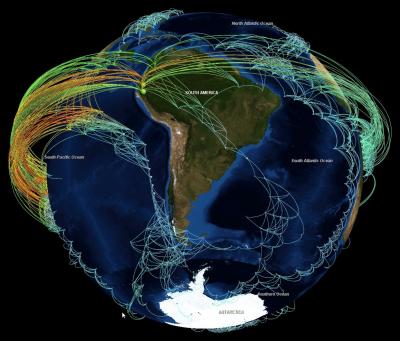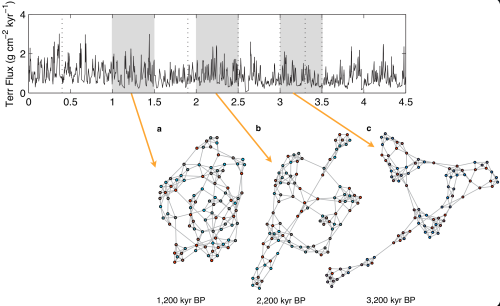Methods
A toolbox of advanced methods for data analysis and modeling is developed, explored and refined within the ECONS project. See the related Publications for detailed technical information.
Network-based analysis of geoscientific data

Visualization by CGV, thanks to T. Nocke (PIK) and C. Tominski (University of Rostock)
Climate networks allow to map and analyze the manifold and complex interactions within the Earth's climate system in a graph-theoretical framework. They have been used to detect a backbone of high energy flow in the surface air temperature field. Within the ECONS project, coupled climate network analysis to study interrelationships between different components of the Earth and climate system has been developed and is currently applied in several case studies.

Recurrence networks capture the recurrence structure of observations in a single time series, e.g., representing the dynamics of a subcomponent of the Earth system. They have been successfully used to detect nonlinear transitions (tipping points) in the dynamics of model systems and paleoclimate records as well as to reliably distinguish periodic from chaotic dynamics based on short time series. Within the ECONS project, a solid theoretical foundation of recurrence network analysis has been worked out to foster its application to study further tipping elements of the Earth system.
| 
